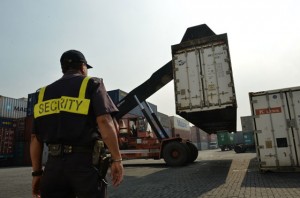Standing near mountains of goods destined to be smuggled through the Philippines’ biggest port, the nation’s customs chief admits that being on the frontline of the president’s war on graft is overwhelming.
“I’ve never seen anything like it,” John Sevilla said, commenting on a pervasive culture of bribery, extortion and stealing at a government agency that collects revenues equivalent to 20 percent of the nation’s budget.
“There’s no secret about the fact that this is not an agency which inspires a lot of trust and confidence among our people.”
But Sevilla, a former Goldman Sachs executive, has bold plans for systemic change that are showing early signs of success.
President Benigno Aquino 3rd, who has made fighting graft a central tenet of his administration, appointed Sevilla to head the bureau in December last year after launching a scathing verbal assault on customs personnel.
Aquino said customs personnel’s greed cost the country at least P200 billion in lost revenues each year -- at least two percent of the country’s economic output.
Several months later, the then-customs chief resigned after being charged over a separate corruption scandal involving the alleged theft of government funds.
He was replaced by Sevilla, who was then a finance undersecretary and well regarded for his earlier career with global financial giants, including Goldman Sachs in Hong Kong and Standard & Poor’s in New York.
“I was not prepared for this. I was not prepared to come into customs at all,” the 45-year-old said during a recent tour of customs headquarters and Manila’s main port.
Tens of thousands of containers are stacked at the port, and Sevilla pointed out that overwhelmed customs staff inspect, on average, just 0.1 percent of them.
He said officials taking bribes to assess lower taxes, or outrightly using their positions to extort money from importers, were the other major problems.
Temptation
Customs district collectors earn the equivalent of just $1,140-1,600 a month, according to the bureau, but their jobs are highly sought after because of the lucrative corruption opportunities they offer.
Sevilla joked that the bribery is so rampant and well-known that corrupt traffic police regard customs officers as great targets for bribes.
“The police will say your racket is even more lucrative than ours, so you must pay up,” he said.
Part of Sevilla’s clean-up strategy is old-fashioned internal law enforcement.
Sevilla has placed 65 customs personnel under investigation for irregular import transactions, and another was banished to a far-flung port over persistent allegations of wrongdoing, aides said.
Sevilla is also seeking to expand the 3,600-member bureau by 1,000 staff, while bringing in new senior officials and rotating personnel in key posts so they cannot build corruption networks.
But he said the key to overhauling the agency was building transparency by bringing its outdated or non-existent computer networks into the 21st century.
Sevilla, who has a Master of Public Affairs from Princeton University in the United States, has begun publishing every single trade transaction on the bureau’s website.
“It’s very important to show we are not trying to hide something,” he said.
He is also using IT to detect fraud and other forms of misconduct within transactions.
“It’s very transactional, so to monitor whether we’re doing our job properly we really need to drill down to the level of individual import transactions,” he said.
Quick results
Sevilla said the reforms had achieved some quick results, with collections in the first eight months of 2014 up 17 percent from a year earlier.
“The feedback is customs is more efficient now . . . There is less corruption, fewer people are asking for bribes,” Sevilla said.
But he admitted that the bureau is still likely to miss its full-year target of 408 billion pesos, acknowledging that there is a long way to go.
Victor Abola, program director for strategic business economics at the Manila-based University of Asia and the Pacific, said Sevilla was on the right track.
“I think he’s a credible customs collector,” Abola told Agence France-Presse.
But he said that with Aquino limited by the constitution to serving a single term of six years, reforms need to be “institutionalized” to withstand any potential backsliding under a new president from 2016.
“No president can just appoint one person and expect him to do wonders, Abola said. “There’s no silver bullet.”
AFP


